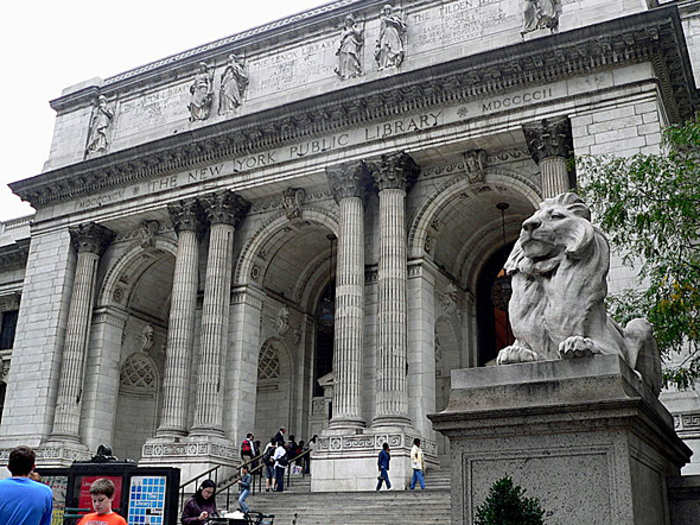25 Books That Will Blow Your Mind
"The Psychopath Test: A Journey Through the Madness Industry" by Jon Ronson

"1984" by George Orwell
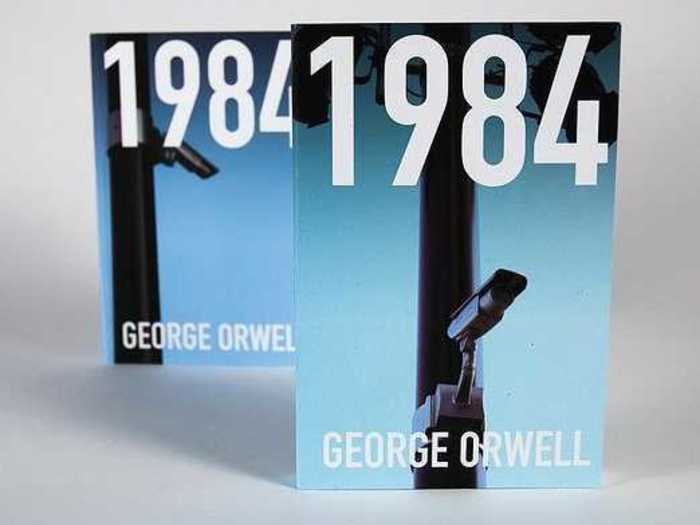
George Orwell predicts a totalitarian future in "1984." Big Brother originated in this dystopian novel with ever-present government security and Thought Police, who prosecute citizens for subversive thoughts.
It follows Winston Smith through Airstrip One, formerly Great Britain. He engages in an intellectual rebellion against the Party, and undergoes torture and attempted re-education. The book critiques nationalism, censorship and surveillance. It also makes much of regulating language in order to regulate behavior.
Submitted by Reddit user NewbornMuse.
"Cat's Cradle" by Kurt Vonnegut
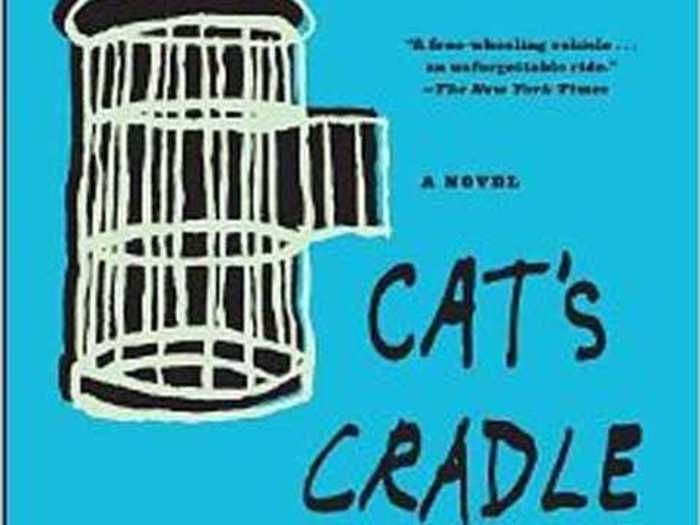
"Cat's Cradle" is a book about writing. It follows John on his mission to write a book about the day the atomic bomb was dropped on Hiroshima. But quickly, the tale turns into a high-stakes adventure that revolves around stealing, selling and bartering a newly discovered isotope.
Vonnegut said he was inspired to write the book after working as a PR representative for General Electric, where he met scientists who were indifferent to the consequences of their discoveries.
Submitted by Reddit user kelvinkkc.
"Ender's Game" by Orson Scott Card
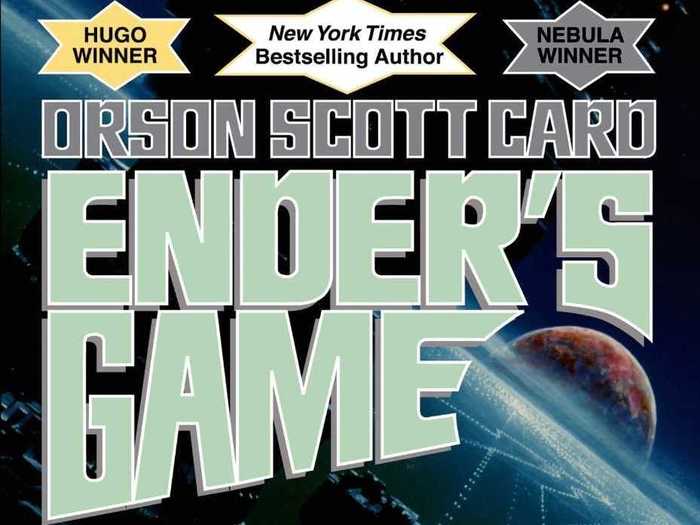
Orson Scott Card creates a militarized science fiction universe in "Ender's Game." After two battles with insect-like aliens called "Buggers," Earth is weakened.
But its population has discovered a way to prepare for future attacks: training children as soldiers in a series of games in zero gravity. One child soldier, Ender Wiggin, quickly establishes himself as a tactical genius.
Some critics took issue with Ender's intensely violent behavior for someone so young, and drew parallels between him and Hitler.
The novel was recently made into a movie starring Harrison Ford.
Submitted by Reddit user IAMA_dragon-AMA.
"Brave New World" by Aldous Huxley
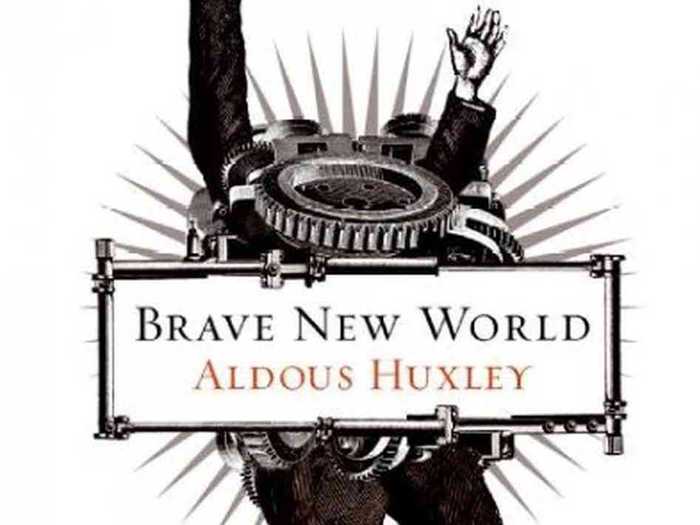
"Brave New World" takes its name from a speech in Shakespeare's "The Tempest," in which a girl brought up in isolation comes into contact with strange, new people for the first time.
Along those lines, Bernard Marx is confronted with a strange, new world view when he leaves the World State in London and visits the Savage Reservation in New Mexico. Set in a future that measures time "After Ford," paying homage to the great forefather of the assembly line, Bernard has to navigate changing the World State or leaving it.
Submitted by Reddit user werner291.
"Flowers for Algernon" by Daniel Keys

Charles Gordon, a man with an intellectual disability, is chosen at the beginning of "Flowers for Algernon" to participate in an experiment to boost his intelligence.
An experimental surgery to that end has already been tried on a lab mouse called "Algernon," and the scientists are eager to try it on a human. The story unfolds in a series of progress reports that Charlie writes about his life.
The novel looks at the treatment of the mentally disabled, the struggle for happiness and how your past can influence your future.
Submitted by Reddit user chris8499.
"The Giver" by Lois Lowry
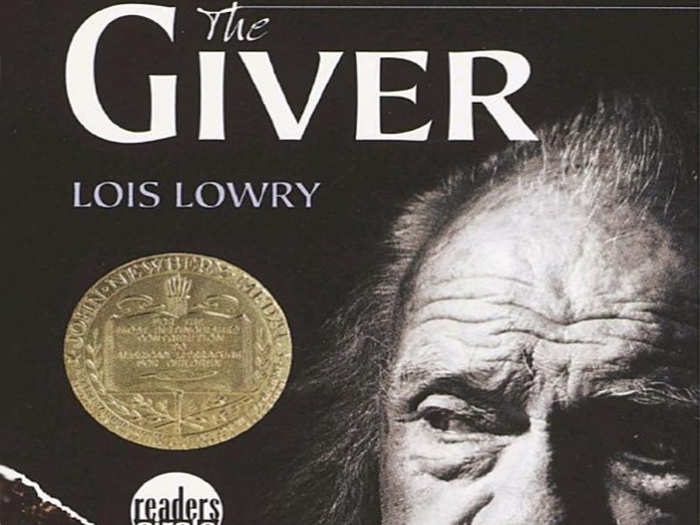
Choices don't exist in the dystopian world created by Lois Lowry in "The Giver." Every member of the society has an assigned role. But when one boy, Jonas, turns 12, he's chosen for special training with the Giver, the only person in the community who holds memories of true pain and pleasure.
The novel enters the age-old debate of balancing the needs of the individual with the needs of society.
Submitted by Reddit user danrennt98.
"One Flew Over the Cuckoo's Nest" by Ken Kesey
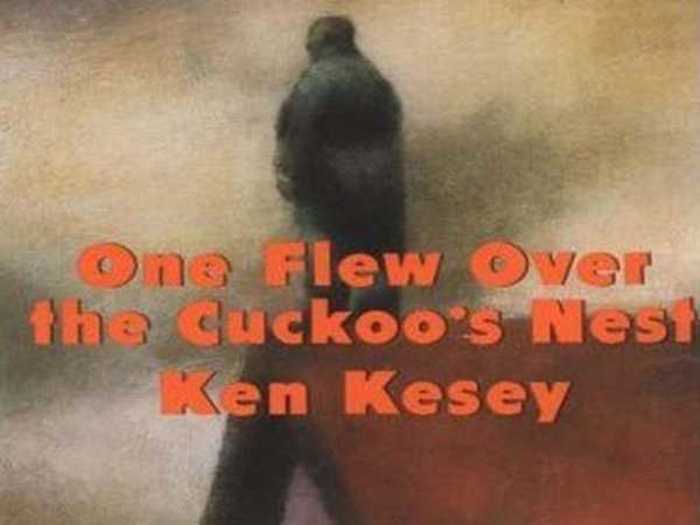
Chief Bromden, a half-Native American patient in a mental institution, narrates "One Flew Over the Cuckoo's Nest."
The story revolves around the deep-rooted conflict between the free-spirited Randle McMurphy and the totalitarian Nurse Ratched. While McMurphy initially got himself thrown into the mental ward because he thought it would be more comfortable than serving a jail sentence on a work farm, he quickly realizes the power Nurse Ratched wields.
The novel works with ideas of sexuality and sanity, particularly the perception of women as castrators and the repression of natural desires.
Submitted by Reddit user sqqueen.
"House of Leaves" by Mark Z. Danielewski
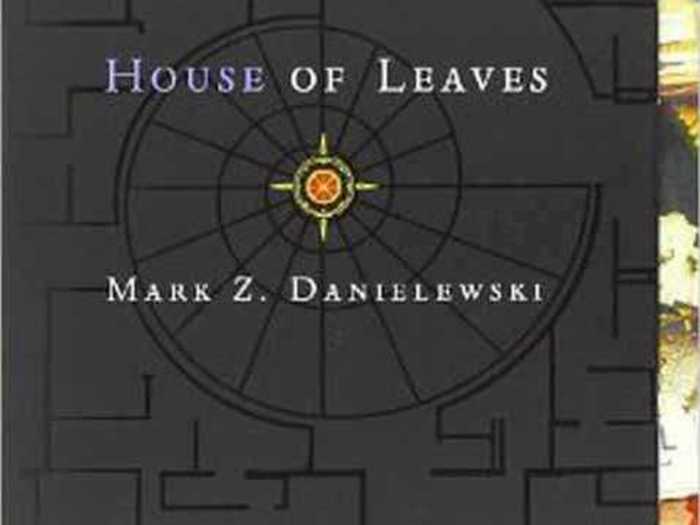
Mark Danielewski's "House of Leaves" begins like most horror movies: A young family moves into an old house in the country. But then things get weird. They discover their house measures wider on the inside than the outside. This seemingly inconsequential detail obsesses the family to the point of terrible consequences.
When Johnny Truant, a Los Angeles tattoo artist hears of the house, thanks to a recently deceased neighbor who was obsessed with solving its mystery, he too becomes entangled.
The book takes unusual form, with pages appearing sideways or out of order. There are also reams of footnotes, appendices and hyper-textual connections.
Submitted by Reddit user Pater-Familias.
"A Brief History of Time" by Stephen Hawking
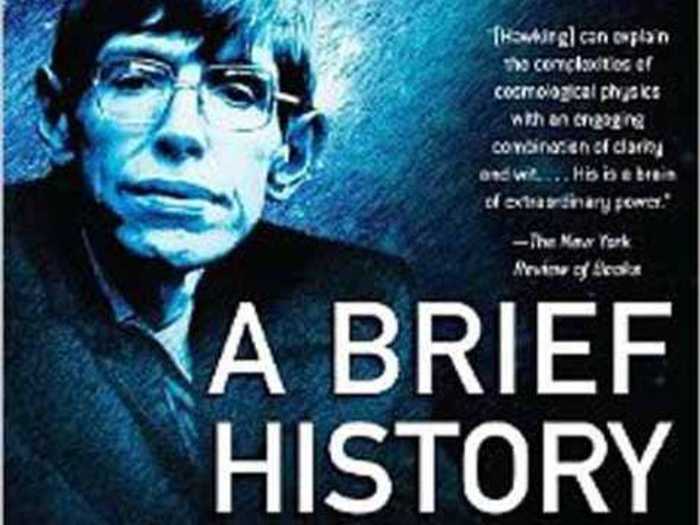
Stephen Hawking, one of the most famous physicists of our time, has made a career out of explaining outer space to the masses. In a seminal piece of science writing, Hawking uses plain language to discuss black holes, quarks, antimatter and the Big Bang.
"A Brief History of Time" also delves into the larger debate of how scientific origins of Earth and man exist in relation to origins of Earth and man from God.
Submitted by Reddit user ULICKMAGEE.
"Fight Club" by Chuck Palahniuk
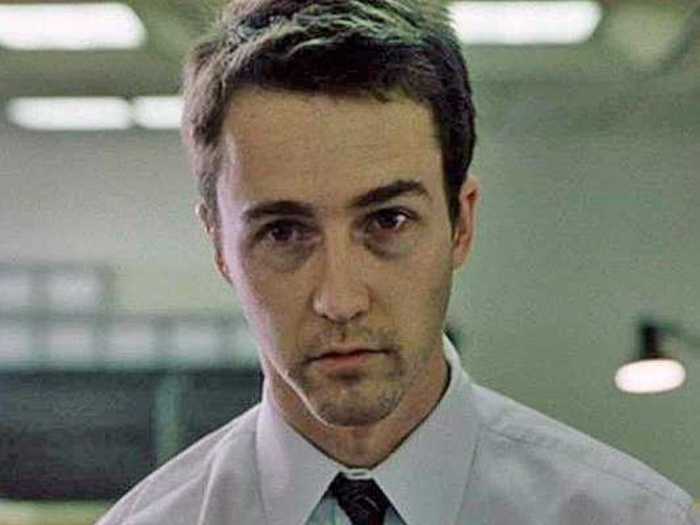
Chuck Palahniuk wrote one of fiction's most celebrated endings for his debut novel, "Fight Club." The story opens with the disconsolate narrator leaving his job after an unexpected encounter with a man called Tyler Durden. Durden holds secret boxing matches in the basements of bars, which fascinates the normally tame narrator.
The novel escalates to the point of making you question the state of masculinity, class and identity in modern America.
Submitted by Reddit user Kukulkun.
"The Handmaid's Tale" by Margaret Atwood
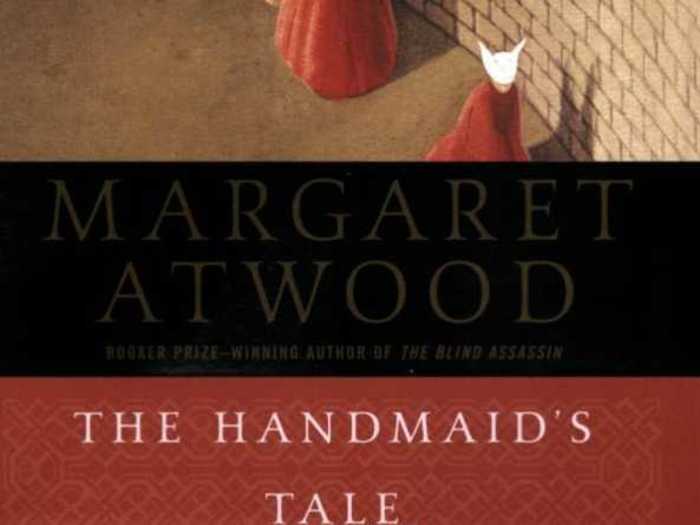
Margaret Atwood tracks the descent of freedom, particularly women's freedom, in her dystopian novel "The Handmaid's Tale." In the beginning, Offred lives with her husband and daughter, has a job and can spend her own money.
But she quickly becomes a helpmate in the home of the Commander in the Republic of Gilead. She's allowed to leave the home once a day to walk to the food market and otherwise exists for the Commander to sexually enjoy and impregnate.
It deals with women's bodies as political tools and rape and sexual violence.
Submitted by Reddit user Sporkicide.
"To Kill a Mockingbird" by Harper Lee
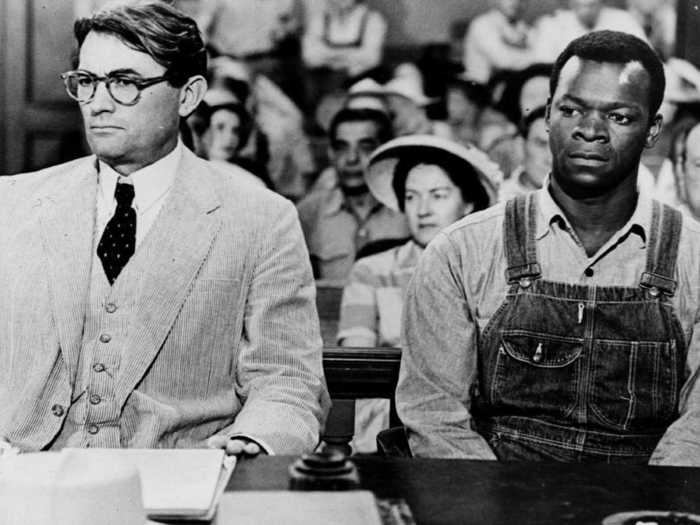
In a sleepy Alabama town, Scout Finch and her brother Jem spend their days daring each other to knock on the door of their reclusive neighbor Boo Radley. But they're quickly faced with the adult world when their lawyer father Atticus takes a case defending a local Black man falsely accused of raping a white woman.
The narrative dissects Southern life, including racial injustice, class and gender roles.
Submitted by Reddit user LeavesItHanging.
"100 Years of Solitude" by Gabriel Garcia Marquez
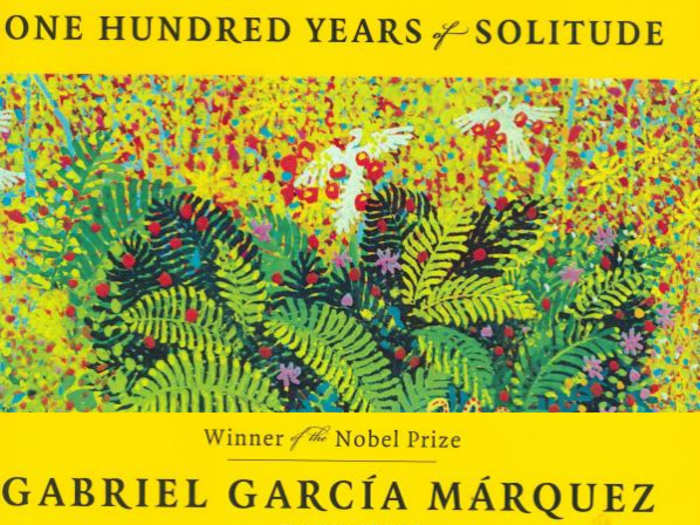
"One Hundred Years of Solitude" chronicles the rise and fall of the mythical town of Macondo in Colombia. The story intertwines with the history of the Buendía family, who founded the town. The family experiences seven generations of misfortunes thanks to their misguided perception of the town they founded.
The book deals with the flexibility of time, incest and isolation. It's part of the literary Latin American Boom in the 1960s and '70s.
Submitted by Reddit user Whoneedsyou.
"Candide" by Voltaire
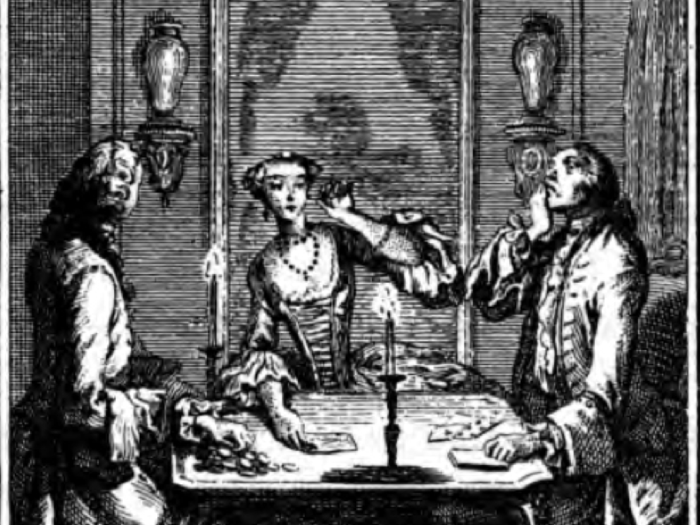
"Candide" is a satirical romp through France during the Age of Enlightenment in the late 17th and early 18th centuries. The eponymous hero grows up in the bucolic countryside where optimism is the order of the day. But a misadventure thrusts Candide from his comfortable home to confront the darker sides of humanity.
In the book, Voltaire critiques his era's political, social, and moral philosophies.
Submitted by Reddit user JeebusLovesMurica.
"The Brothers Karamazov" by Fyodor Dostoevsky
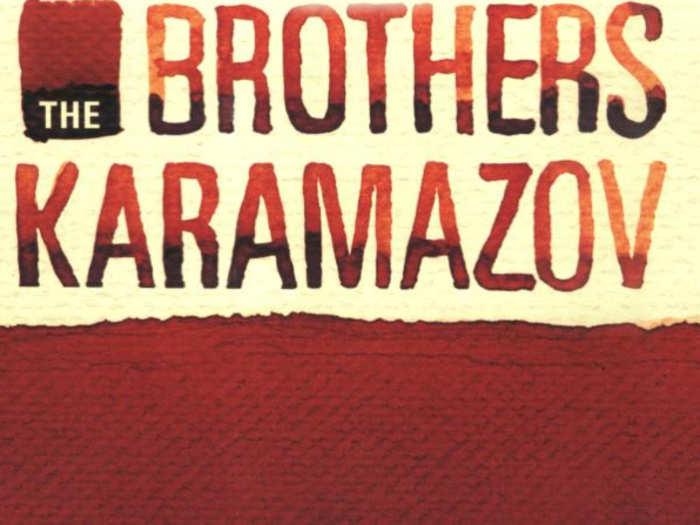
"The Brothers Karamazov" is the last novel published by famed Russian author Fyodor Dostoevsky. He spent two years writing the book that follows the three sons of an unhappy man, Fyodor Pavlovich Karamazov.
Dmitri, Fyodor's oldest son, quarrels with his father about an inheritance that was left to him by his mother. Dmitri's brothers join the fray to help settle the quarrel, and they all end up realizing there's more in their family to fight about than money.
One of the Karamazov brothers works for the church and the crux of the novel uses the conflict between father and son to work out the conflict between faith and doubt.
Submitted by Reddit user pizzafapper.
"Kafka on the Shore" by Haruki Murakami
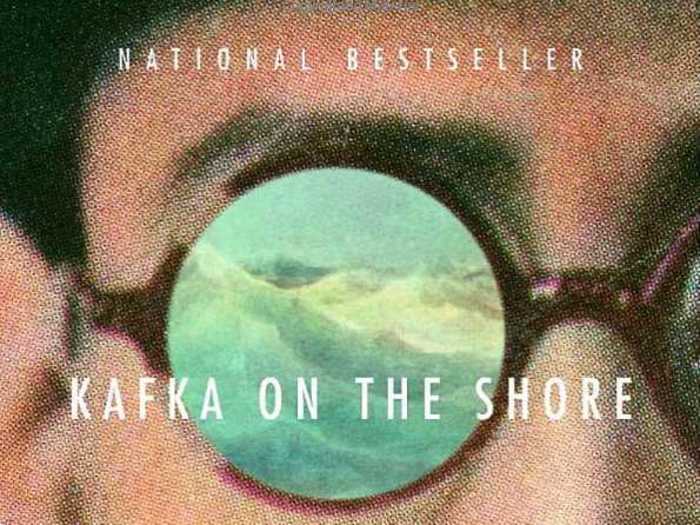
Nakata, an aging veteran who never recovered from his wartime injuries, is drawn to Kafka, a teenage runaway, in Haruki Murakami's 2002 novel "Kafka on the Shore."
Since the 2005 publication of its English translation, readers have been transfixed by the story, which is made up of several riddles. The cat characters become just as important as the human characters in the quest to understand the novel.
Murakami mixes pop culture, magical realism and suspense to create what some critics have described as a modern Greek tragedy.
Submitted by Reddit user Jobasaurus.
"The Stand" by Stephen King
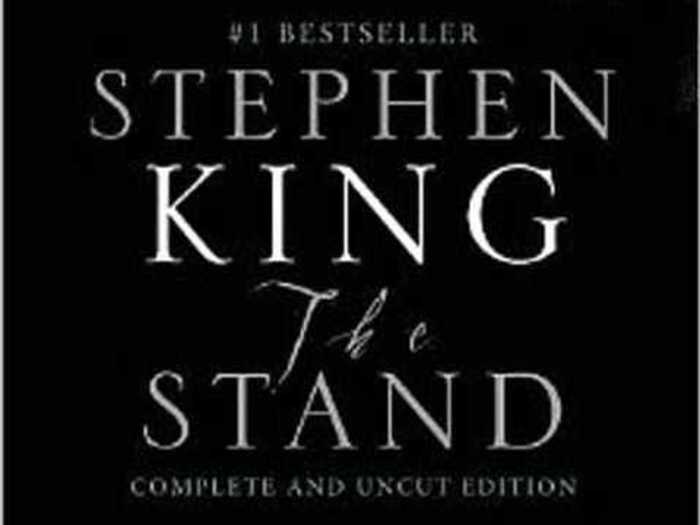
Stephen King creates a post-apocalyptic world in "The Stand." The book follows an escaped patient from a biological testing facility. He's carrying a strain of super-flu that could ravage 99% of the world's population.
Dealing with this problem creates the fulcrum of the age-old battle between good and evil. On one hand, the 108-year-old Mother Abigail urges people to build a peaceful community in Colorado to sustain themselves. On the other, Randall Flagg, known as the “Dark Man,” champions a violent retaliation.
Submitted by Reddit user TheHatsby.
"Catch-22" by Joseph Heller
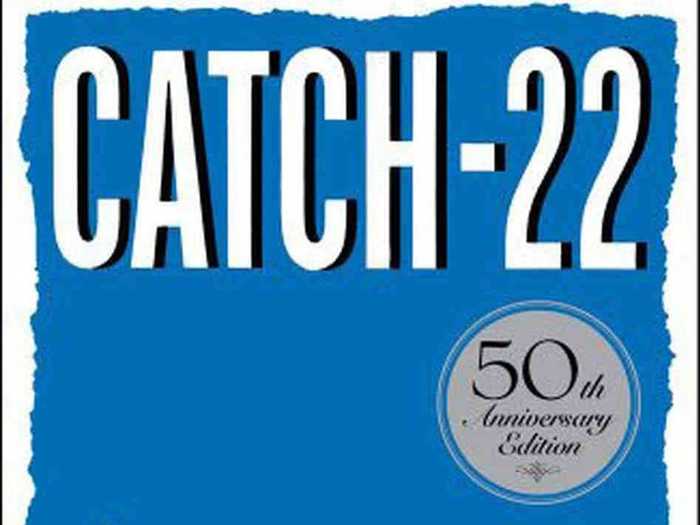
"Catch-22," Joseph Heller's classic tale of the loss of faith amid the rise of bureaucratic power, takes place in World War II-era Italy. The Bombadier Yossarian is asked to repeatedly increase the number of missions he has to complete, even after it becomes clear that the Allies have won.
But to gain relief from these essentially useless missions, a fighter has to be proven insane. According to the "Catch-22" rule, a man is considered insane if he willingly flies dangerous combat missions, but if he requests to be removed from the missions, that makes him sane, and therefore ineligible to stop his duties.
Submitted by Reddit user marathonlimit.
"The Foundation" by Isaac Asimov
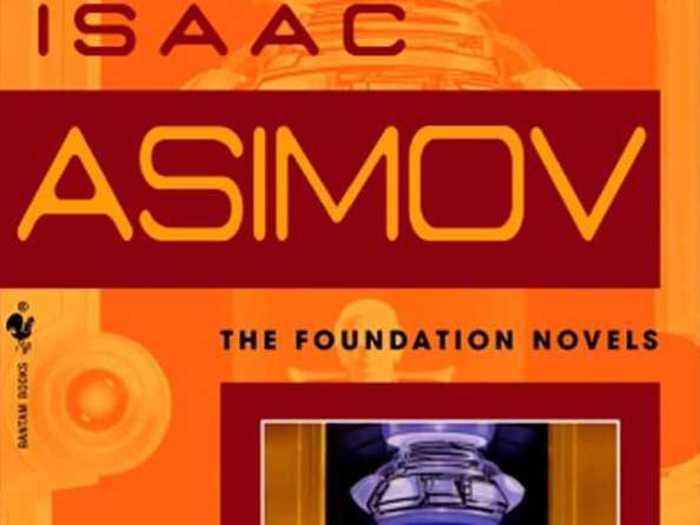
Isaac Asimov starts his seven-volume "Foundation" series at the decline of the Galactic Empire, which has reigned for 12,000 years. As the empire falls, Hari Seldon, the inventor of a new science known as psychohistory, can see a future of ignorance and warfare that will last 30,000 years.
To save the world's intelligence, Seldon forms what he calls "the Foundation," on a planet at the far edge of the galaxy. The empire's best scientists and scholars congregate in the Foundation, but corrupt warlords also rise up in the power vacuum.
The Foundation novels deal with the evolution of civilization and societies.
Submitted by Reddit user Legitsu.
"The Curious Incident of the Dog in the Night-Time" by Mark Haddon
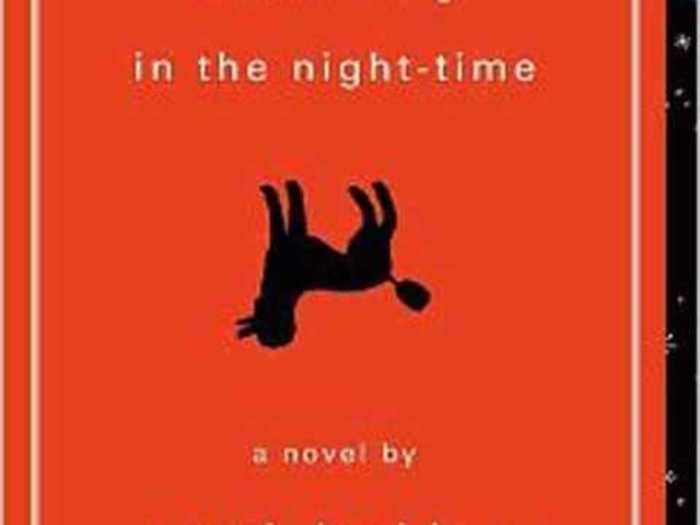
Mark Haddon helped educate children with autism before publishing "The Curious Incident of the Dog in the Night-Time." That explains how beautifully he captures the voice of the novel's teenage narrator Christopher John Francis Boone, who makes it his mission to solve the the suspicious death of a neighborhood dog.
The mystery offers a point of entry into the wondrous mind of Christopher, who knows all the countries of the world and their capitals and every prime number up to 7,057. The novel follows Christopher as he grows up in the suburbs outside London.
Submitted by Reddit user Wrathchilde.
"All Quiet on the Western Front" by E.M. Remarque
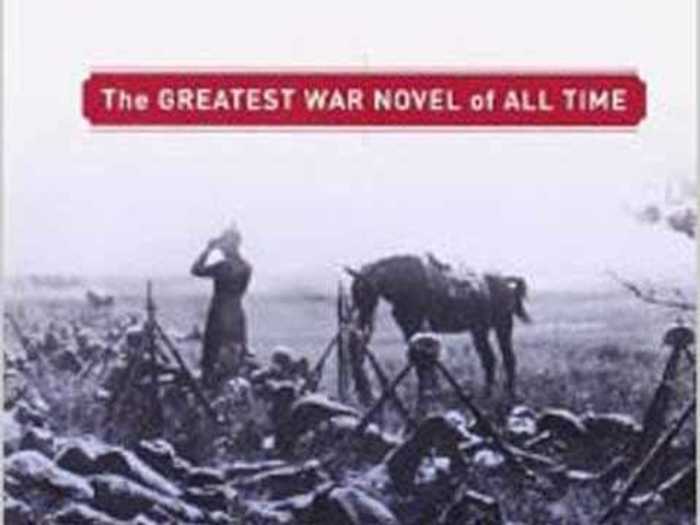
"All Quiet on the Western Front" follows World War I from a young German soldier's point of view. Nineteen-year-old Paul Bäumer enlists in the army with several of his friends and fights on the French front of the war. They quickly learn the brutality of trench warfare and their ideals of nationalism and patriotism come into question.
The novel delves into the horrors of war, the pressure to be patriotic, man's harsher instincts and post-traumatic stress. It's one of the few books in the cannon to tackle these themes from the losing side of the war.
Submitted by Reddit user Dr_Karate.
"The Kite Runner" by Khaled Hosseini
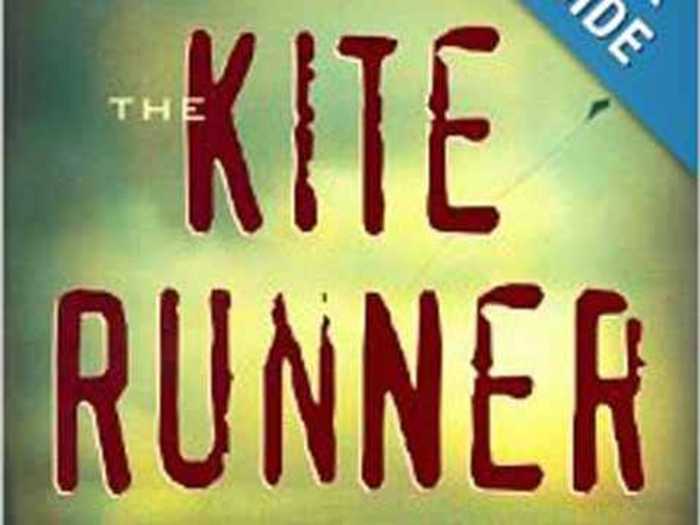
Khaled Hosseini writes about an unlikely friendship between a wealthy man's son and the son of a servant in "The Kite Runner." The book opens with Amir recalling his childhood in a well-to-do household in Kabul, Afghanistan, where he grew up alongside Hassan, the son of his father's servant and an ethnic minority known as Hazaras.
The pivotal moment in the boys' lives comes during a kite fighting tournament in winter. Amir wins the tournament and Hassan must run to fetch the losing kite, but is attacked and raped along the way. Amir pretends not to have seen this injustice.
The novel explores the complicated legacies fathers leave for their sons, the search for redemption and the intersection of political narratives with private lives.
Submitted by Reddit user verbosegf.
"Infinite Jest" by David Foster Wallace
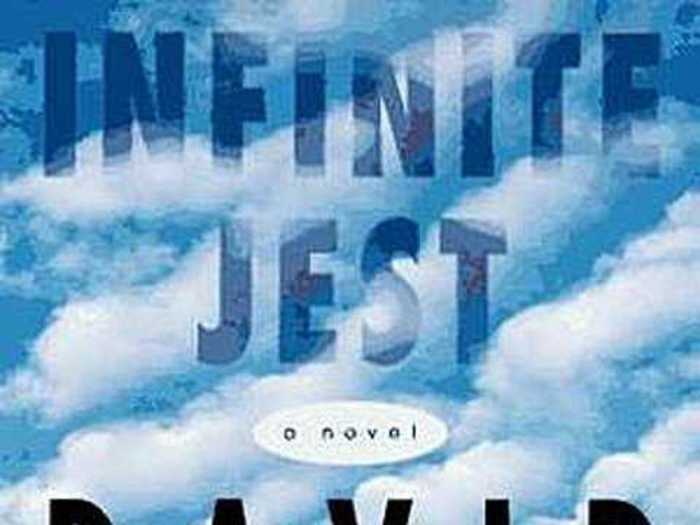
David Foster Wallace's comic tome satirizes the pursuit of happiness in America. "Infinite Jest" takes place in a near-future North America comprised of a unified Mexico, United States and Canada. Corporations bid for the naming rights of each calendar year.
Part of the plot revolves around retrieving the missing master copy of a film cartridge that makes viewers lose all interest in anything other than viewing it.
Wallace's novel deals with substance abuse, marking time and how entertainment affects our needs to connect with other people.
Submitted by Reddit user tealatlas.
The Road by Cormac McCarthy
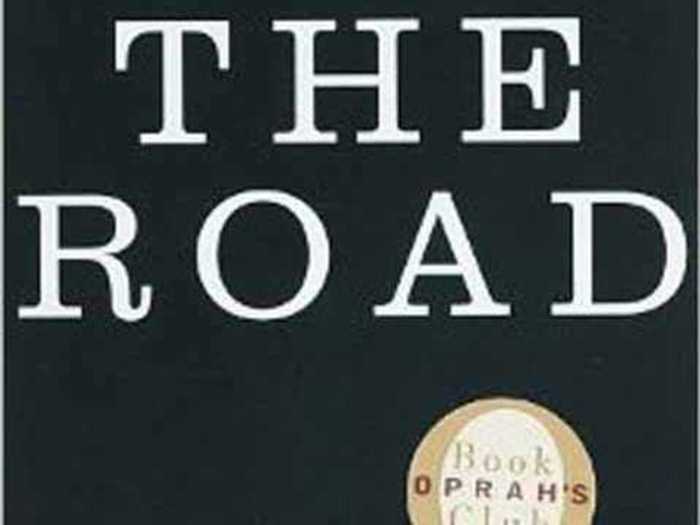
Cormac McCarthy creates a post-apocalyptic world in "The Road." A father and his young son must travel across the scorched Earth in a supermarket cart looking for refuge from the impending harsh winter. In addition to lack of resources, the father and son must also dodge cannibals, which most survivors of the apocalypse have become.
The novel exposes the tenacity of the human spirit in the face of disaster and while dissecting the father-son relationship.
Submitted by Reddit user 14xman1996.
Popular Right Now
Popular Keywords
Advertisement
